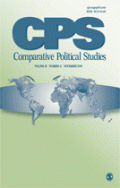
Abstract
Village elections in China present scholars with the case of a single-party regime that allows voters to reject candidates regularly. Using a micro survey of 698 voters in 30 rural election districts, the authors demonstrate that when some candidates can lose, voters participate. A comparison of models of voter turnout and running for office further demonstrates that even when competition is structured to the benefit of party members, the perception of competition as choice between candidates is sufficient to engage voters and increase their perception that the electoral process is fair. These findings hold regardless of a respondent’s age, gender, membership in the Communist Party and Youth League, and general knowledge level and access to media. Village wealth and geographical isolation also do not demonstrate a strong substantive impact. One theoretical implication of these findings is that contested elections in authoritarian regimes may simultaneously strengthen demand for accountability and loyalty to the regime.